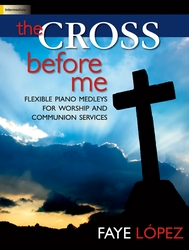- |
User Links
Birthday
God of my life, to Thee My cheerful soul I raise
Author: Charles WesleyTune: LENOX (Edson)
Published in 66 hymnals
Representative Text
1 God of my life, to thee
My cheerful soul I raise;
Thy goodness bade me be,
And still prolongs my days;
I see my natal hour return,
And bless the day that I was born.
2 My soul and all its powers
Thine, wholly thine, shall be;
All, all my happy hours
I consecrate to thee;
Whate'er I have, whate'er I am,
Shall magnify my Maker's name.
3 Long as I love beneath,
To thee, oh, let me live!
To thee my every breath,
In thanks and praises give!
Creating and preserving grace
Let all that is within me praise.
4 Then, when the work is done,
The work of faith and power,
Receive thy rescued son
In death's triumphant hour;
Like Moses, to thyself convey
My soul, to live in endless day.
Source: The Voice of Praise: a collection of hymns for the use of the Methodist Church #727
Author: Charles Wesley
 Charles Wesley, M.A. was the great hymn-writer of the Wesley family, perhaps, taking quantity and quality into consideration, the great hymn-writer of all ages. Charles Wesley was the youngest son and 18th child of Samuel and Susanna Wesley, and was born at Epworth Rectory, Dec. 18, 1707. In 1716 he went to Westminster School, being provided with a home and board by his elder brother Samuel, then usher at the school, until 1721, when he was elected King's Scholar, and as such received his board and education free. In 1726 Charles Wesley was elected to a Westminster studentship at Christ Church, Oxford, where he took his degree in 1729, and became a college tutor. In the early part of the same year his religious impressions were much deepene… Go to person page >
Charles Wesley, M.A. was the great hymn-writer of the Wesley family, perhaps, taking quantity and quality into consideration, the great hymn-writer of all ages. Charles Wesley was the youngest son and 18th child of Samuel and Susanna Wesley, and was born at Epworth Rectory, Dec. 18, 1707. In 1716 he went to Westminster School, being provided with a home and board by his elder brother Samuel, then usher at the school, until 1721, when he was elected King's Scholar, and as such received his board and education free. In 1726 Charles Wesley was elected to a Westminster studentship at Christ Church, Oxford, where he took his degree in 1729, and became a college tutor. In the early part of the same year his religious impressions were much deepene… Go to person page >Text Information
| First Line: | God of my life, to Thee My cheerful soul I raise |
| Title: | Birthday |
| Author: | Charles Wesley |
| Meter: | 6.6.6.6.8.8 |
| Language: | English |
| Copyright: | Public Domain |
God of my life, to Thee, My cheerful soul, &c. C. Wesley. [Birthday Hymn.] No. 10 of his "Hymns for Believers," given in Hymns & Sacred Poems, 1749, vol. i., No. 123, in 8 stanzas of 6 lines, and again in the Wesleyan Hymn Book, 1780, No. 219, with the omission of stanza v. In the revised edition of 1875, No. 229, the original stanzas are given in this order, i., ii., iv., iii., vi., viii., thus making a hymn of 6 stanzas. The last stanza contains the lines:—
"Like Moses to Thyself convey,
And kiss my raptured soul away."
These lines are based upon the Jewish tradition that God drew the soul of Moses from the body by a kiss. Watts has the same idea in his poem on the death of Moses—
"Softly his fainting head he lay
Upon his Maker's breast;
His Maker kissed his soul away,
And laid his flesh to rest."
(See Horae Lyricae, 1706). C. Wesley's Original text is in Poetical Works, 1868-72, vol. v. p. 15.
--John Julian, Dictionary of Hymnology (1907)
Notes
God of my life, to Thee, My cheerful soul, &c. C. Wesley. [Birthday Hymn.] No. 10 of his "Hymns for Believers," given in Hymns & Sacred Poems, 1749, vol. i., No. 123, in 8 stanzas of 6 lines, and again in the Wesleyan Hymn Book, 1780, No. 219, with the omission of stanza v. In the revised edition of 1875, No. 229, the original stanzas are given in this order, i., ii., iv., iii., vi., viii., thus making a hymn of 6 stanzas. The last stanza contains the lines:—
"Like Moses to Thyself convey,
And kiss my raptured soul away."
These lines are based upon the Jewish tradition that God drew the soul of Moses from the body by a kiss. Watts has the same idea in his poem on the death of Moses—
"Softly his fainting head he lay
Upon his Maker's breast;
His Maker kissed his soul away,
And laid his flesh to rest."
(See Horae Lyricae, 1706). C. Wesley's Original text is in Poetical Works, 1868-72, vol. v. p. 15.
--John Julian, Dictionary of Hymnology (1907)


 My Starred Hymns
My Starred Hymns



